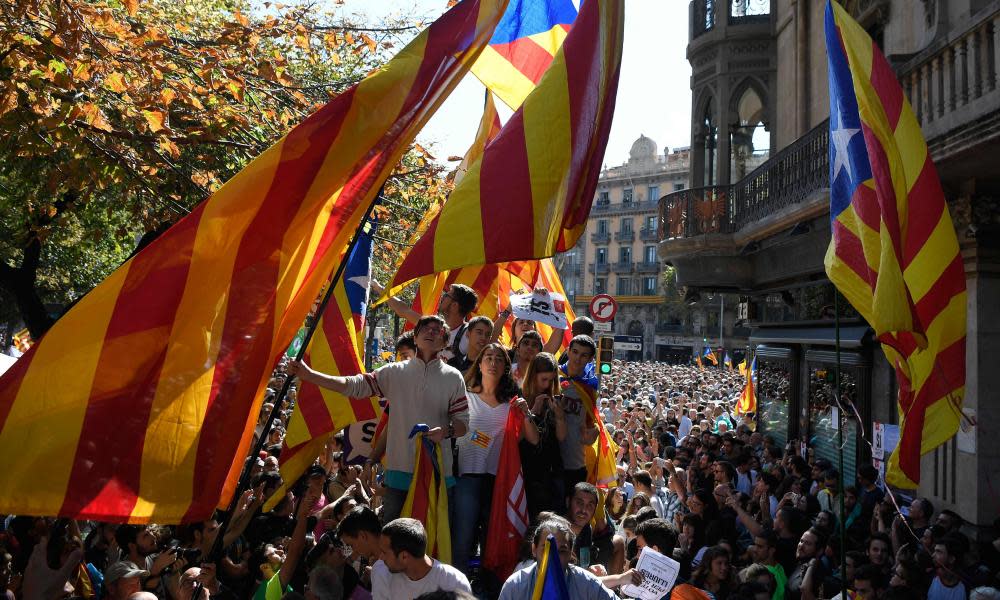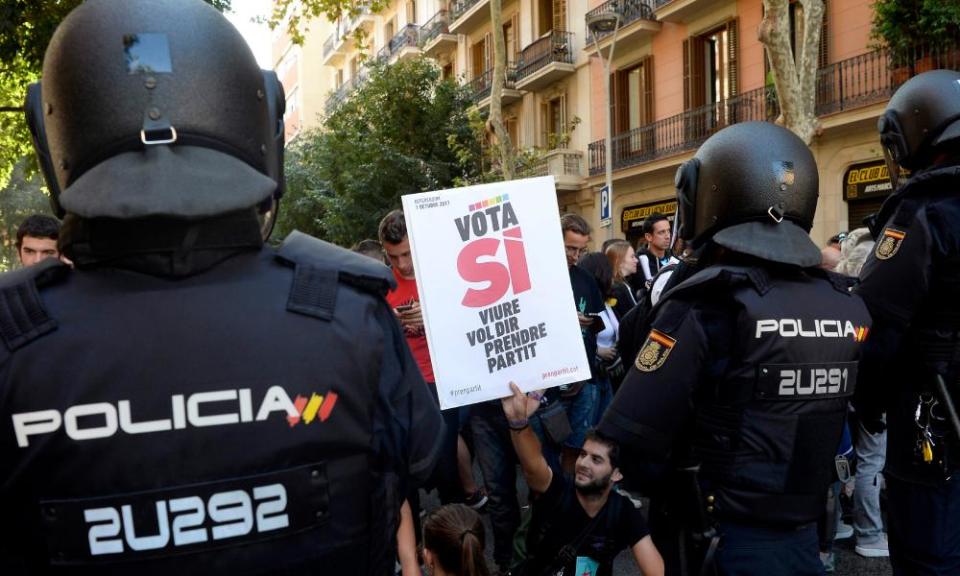Now rattled, is Madrid in danger of playing into separatist hands?

Until Wednesday, the Spanish government’s line on the looming independence vote in Catalonia had been calm, confident and succinct: “There will be no referendum on 1 October.” All too aware of the extreme volatility of the situation, it either sidestepped or shrugged off excitable questions about secession or the possibility of Madrid stepping in to take control of the rebellious regional government.
As recently as Monday, a senior government official told the Guardian: “We always react with a cool head, [and in a] measured way, a proportional way.”
However, for many in Catalonia and beyond, the sight of Guardia Civil officers entering Catalan government buildings and arresting officials for preparing the referendum looks anything but cool, measured or proportional.
Even before the raids took place in Barcelona, Spain’s foreign minister, Alfonso Dastis, a career diplomat with a markedly less confrontational approach than his predecessor, had accused some independence activists of adopting “Nazi attitudes” by trying to intimidate Catalan mayors who opposed the vote.
Spain’s prime minister, Mariano Rajoy, argues that the unilateral referendum set for 1 October is a clear breach of the county’s constitution and that “no democratic state in the world” would tolerate such a violation.
Still, it looks very much as though Madrid is becoming rattled as the day draws nearer. Perhaps Rajoy is finally “banging his fist on the table” as some around him have been urging him to do for a while. But, in its haste to prevent the vote, the government is playing into the hands of the separatists.
Catalonia’s pro-independence regional government, which is far more adept at spin than its national counterpart, was swift and pointed in its response on Wednesday.
In a not particularly subtle nod to Franco’s dictatorship, the Catalonia president, Carles Puigdemont, tweeted: “We will not accept a return to the darkest times. The government is in favour of liberty and democracy #1Oct.”

The independence debate, an argument already gangrenous with talk of fachas (fascists) and traitors, good Catalans and bad Catalans, will only become more monochrome, fractious and polarised over the next 11 days.
Madrid’s more aggressive approach could also lose it support in the region. Polls show that while an overwhelming majority of Catalans want a referendum, 49.4% are against independence while 41.1% are for it.
Any perception that the Spanish state is acting too harshly or threatening Catalan autonomy will serve to narrow that gap. What’s more, it will also energise the already well-mobilised yes camp, who are forecast to turn out in far higher numbers than their unionist peers on 1 October.
Despite the feeling that an unstoppable force is hurtling towards an immoveable object, Rajoy does have a not-so-secret weapon. The Spanish government could decide to reach for the never-before-invoked article 155 of the constitution to suspend Catalonia’s autonomy and place the region under central government control.
However, given the political rigmarole involved, not to mention the fury and protests it would provoke in Catalonia, it would probably be a pyrrhic and short-lived victory.
Puigdemont has said the vote could be called off if the Spanish government let Catalans know when and how they could vote in another, mutually negotiated, referendum.
But such a U-turn looks all but impossible. As the Spanish government studies the protests that erupted in Barcelona on Wednesday, it may realise that a different strategy is required.

 Yahoo News
Yahoo News 
